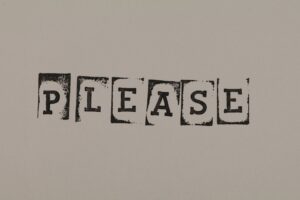In this video I present you 5 generic tips to improve your French pronunciation and facilitate your learning!
Transcript
Hello everyone. I hope you're doing well and that your learning French is going well.
Today, in this video, I'd like to give you some tips on how to improve your pronunciation, erase your accent and become more confident when speaking French. So when we're learning a new language, we often lack confidence. We're afraid of making mistakes or not being understood because of our accent. So, thanks to this video, I hope you'll become more confident and less afraid when you have to speak in French with French speakers.
So my first piece of advice is to listen to and watch content that the French really watch and read.
Choose podcasts, films, YouTube videos, articles online or in magazines on subjects that interest you. Generally speaking, textbooks or traditional books for learning French will teach you vocabulary, dialogues and situations that don't necessarily correspond to everyday reality. This means you'll learn vocabulary by heart, and quickly forget it once you're in a context with real French speakers, because you'll soon realize that they don't use these vocabulary words.
On the contrary, if you watch, if you listen to, if you read content that is really used by the French, even if it may seem more difficult at first, you'll really learn things, words that are used. So, in the long run, it'll be much better for your French learning. So, my second piece of advice is to concentrate on very few accents and voices at the beginning of your learning. In France, as in all countries, there are different accents for different regions.
So, for example, a southern accent is going to be much harder for a foreigner to understand than a Parisian accent, which is smoother and more accessible. So, at the start of your learning process, I'd advise you to choose a few podcasts, a youtuber you like or, for example, choose a TV news channel with a presenter who comes back every day, to get used to his voice, accent and intonations.
In the first instance, this will allow you to really get used to a person, to recognize their way of speaking, their accent, and then it will be easier to introduce new voices and accents. But in the first instance, really, I'd advise you to choose a few different people. It'll be easier for you to understand French.
So my third tip is to really take into account the intonation and rhythm of the French language. Every language has its own intonation, rhythm and sounds.
For example, in French, the tonic accent is placed on the last syllable of a word or phrase. So the tonic accent is really the part of the word or phrase that is stressed. So, as I was saying, you put it on the last vowel. So, in French, the vowels are a e i o u. So, for example, I don't know if you can hear yourselves, but if I say: "Would you like some rice?"
You can hear that the accent is really placed on the last i, the tonic accent is placed on the last vowel of the sentence: "Do you want rice? As I was saying before, by listening to content that's really going to be shown on TV or in films, content that's actually really listened to by the French, you'll gradually understand the intonations where to put them and really understand the rhythm of the language. For this, there's no secret: you really have to watch French content and try to repeat in the same way as the French pronounce it. That's what I'm trying to do here too, and that's why I'm telling you 100 % in French, so that you can really understand the rhythm and intonation of the French language.
If I started translating everything I said into English or your language, it would break the rhythm. Often, as is the case in the dialogues you can listen to with classic textbooks, there will be a little dialogue and then a translation. In fact, you can't really immerse yourself in this French language, it's a bit broken. That's why, even though it may seem a little difficult at first, the fact that I speak 100 % in French really allows you to immerse yourself in this French-speaking world, in the intonation, in the rhythm. The earlier you start to immerse yourself in the real French language, the easier it will be for you to understand it and, above all, to get the hang of it. So it's up to you to speak with the right rhythm, intonation and sound.
My fourth piece of advice is to speak as much French as possible and, above all, not to be afraid of making mistakes.
So, talk, talk, talk, there's no secret to it. That's how you pick up the rhythm of the language, the intonations, the right sounds. If you know any French speakers, you can talk to them and ask them to correct you or point you towards the right pronunciations. If you don't know any French speakers, you can also watch lots of videos and try to repeat what the people in the videos are saying, repeating with the same intonations, with the same rhythm, trying to practice to really, really, really get close to pronouncing the words correctly.
So now we come to my fifth and final piece of advice. It's really to watch movies with French subtitles. So when you put on channels or even videos with French subtitles, watch small parts, cut and repeat. You repeat many times to get the rhythm of the language. The right sounds and you're used to the intonations. It's not just learning the words, pronouncing the words well, it's really done, having that rhythm in French, so, rather than just repeating words, really, try to do that on longer sentences.
That's all for today. I hope you enjoyed this video. If you did, please like it. To see more videos, subscribe to the channel or visit www.hellofrench.com. See you soon.








